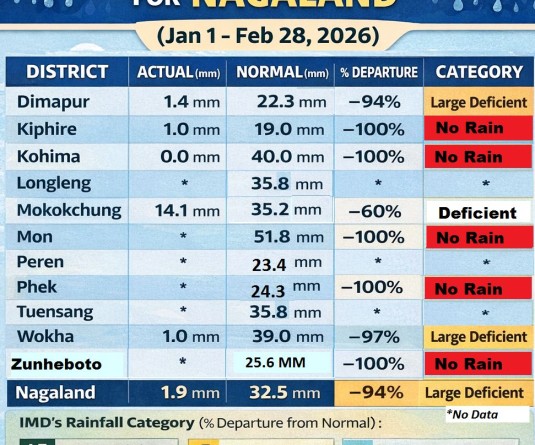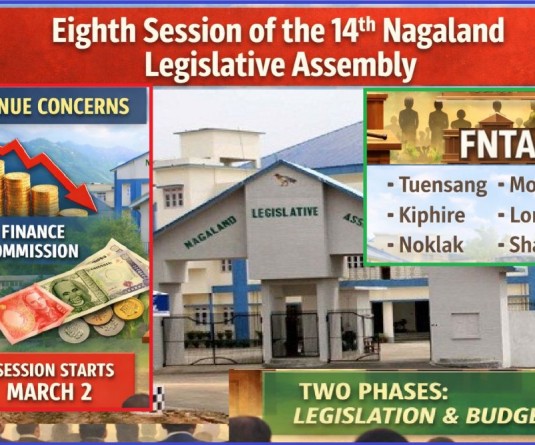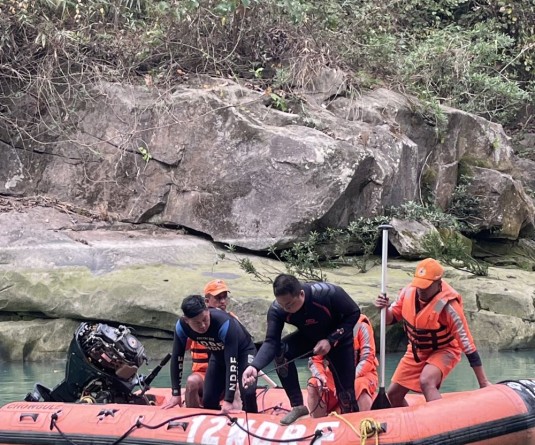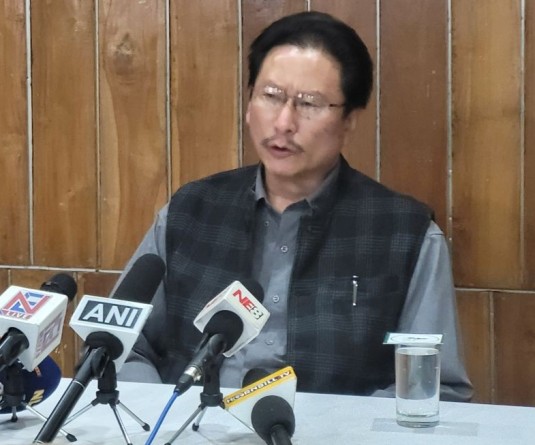
DIMAPUR, FEBRUARY 2 (MExN): Tetso College, Dimapur in collaboration with NIIT Ltd held a seminar on February 2, which focused on the status and the importance of commerce education in Nagaland. Resource persons included Dr. Martina Solo, HOD Commerce department, Nagaland University; Abhijit Chakravarty, principal, Public College of Commerce, Dimapur; N. Thomas Kamei, Assistant professor at Tetso College and Saikat Roy, Zonal Head-East, Institutional Alliance Business NIIT Limited. Students and faculty members of schools and colleges from around the state attended the seminar, which was conducted at the Tetso College campus.
Jeffrey Murry chaired the programme while Dr P S Lorin, Principal, Tetso College gave the keynote address. The seminar was divided into two sessions. The first session saw presentations by Dr. Martina solo titled “An Overview of Commerce Education in Nagaland) and by Abhijit Chakravorty on a study comparing MBA courses offered by Nagaland University and by other universities across the country. Assistant professor of commerce, Tetso College, Lekokonen Longkumer acted as the moderator for the first session.
Dr Martina Solo in her presentation provided a detailed outline of the education scenario in Nagaland with emphasis on the commerce stream. She called upon educators to change the perception of commerce studies as means to “fetch jobs in the business-trade and industry sector.” She also called for students to be trained in accordance with the existing social and economic conditions. There was also talk of reframing the commerce course curriculum in order to push students towards a more utilitarian approach towards the subject. She put emphasis on the “introduction of project works in order to instill working knowledge in the students.”
She then went on to brief the gathering on the district wise development of college education in Nagaland. She also pointed out that there are thirteen colleges offering commerce courses in the state, out of which four are in Kohima and the remaining nine are in Dimapur, leaving the rest of the districts with no institution offering a course on commerce. She further went on encouraging all faculty members to encourage research and coordination with different institutions of the industry sector. She concluded that although much work is yet to be done, she was “pleased with the overall contribution of commerce teachers in the state.
Abijit Chakravorty in his presentation drew comparisons between different universities in the country offering MBA courses. He expounded on the need to recognize the present world as a “global village”, where commerce plays a vital role. He stressed on “entrepreneurial progress and self employment.” He also stated that the role of the placement cells should be in alignment with the needs of the industry.
Amar Ranjan Dey, Assistant professor of commerce, Tetso College, moderated the second session. N Thomas Kamei and Saikat Roy were the two presenters in this session. N Thomas Kamei presented a paper titled, “Growth and impact of commerce education in Nagaland.” He provided a comprehensive historical outline of the educational history of the state. He stated that, “the absence of corporate houses, the economic status of the state and various socio-political factors contributed to the lack of commercial development in the state.” He further noted that Nagaland “is not an investment friendly state”, which contributes to the slow growth rate of commerce education.
Saikat Roy in his talk focused on the scope of studies in commerce and its relevance to the changing socio-economic paradigms in the country. He further urged the students to “not have inferiority complexes as commerce students.” He also said that commerce students have a lot to offer society. Saikat Roy also brought attention to the “employment bottlenecks”, resulting from most students in the state choosing to opt for courses in science or humanities. He further stated that it is “the responsibility of educational institutions to make the students employable.”
The seminar concluded with an interactive session between the students and the resource persons. Rosemary Apon, assistant professor of commerce, Tetso College, delivered a vote of thanks. She thanked everyone involved with the organizing of the seminar along with the participants.






